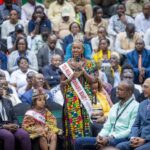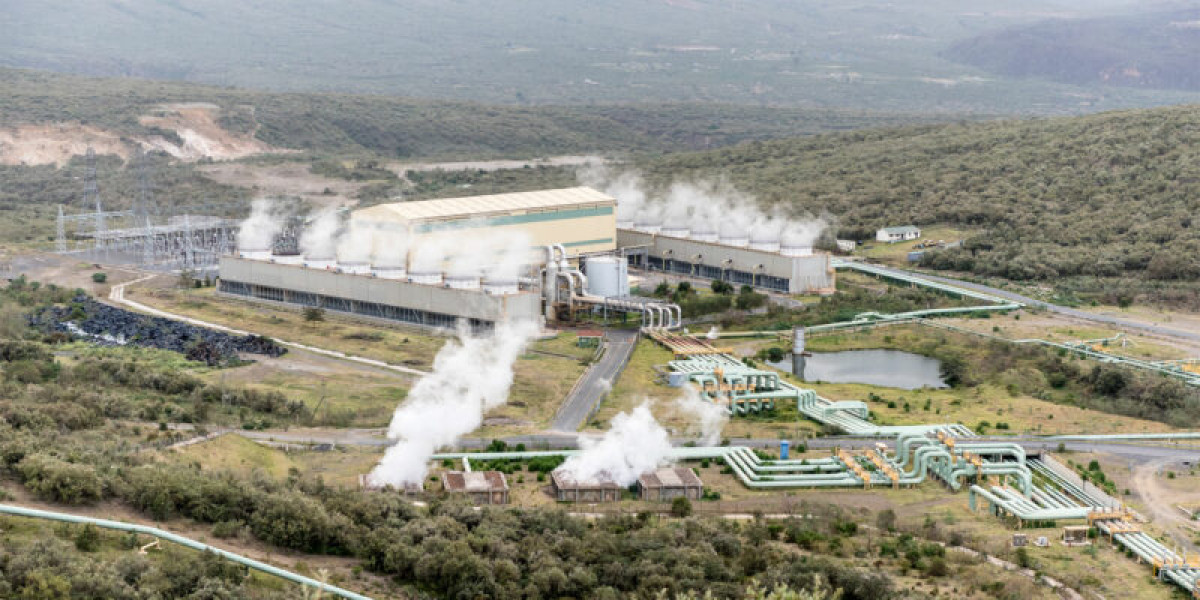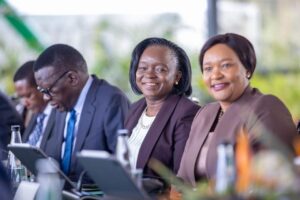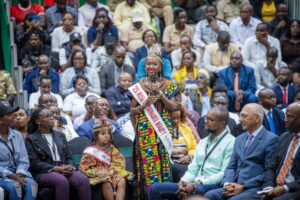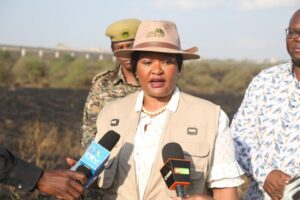Kenya has now moved from position eight to six globally in terms of geothermal energy generation as it remains number one in Africa following the addition of recently completed 83 megawatt (MW) plant at Olkaria 1 Unit VI to the national grid by the energy producer Kenya Electricity Generating Company (KenGen). This brings the country an inch closer to the Geothermal Gigawatt Club.
With the successful commissioning, the share of geothermal energy increases from 37.3% to 42%. It also pushes the total geothermal power generation in Kenya to 944 MW, positioning the country closer to joining the ranks of the U.S., Indonesia, Philippines, Turkey, and New Zealand in the 1-GW club.
Recently, Kenya and the Kingdom of Eswatini were named champions of geothermal energy and energy literacy in the Commonwealth Sustainable Energy Transition agenda.
The decision was made during a side event in the margins of the Commonwealth Heads of Government Meeting in Kigali that concluded on Sunday.
According to a dispatch by the Commonwealth, Kenya and Eswatini will in their new roles lead in forming voluntary coalitions of member states willing to work together to develop strategies on geothermal energy and literacy.
Commonwealth deputy secretary-general Arjoon Suddhoo said the initiative is Commonwealth’s flagship for accelerating the global energy transition.
“Our Commonwealth is blessed with a wealth of precious natural resources, including renewable energy sources such as wind, solar, geothermal, tidal and wave energy. However, our shared economic recovery will depend upon learning from the past and continuing to learn from one other as we build a better future.
“The SDGs point the way, particularly SDG7 on sustainable energy, SDG13 on climate change, and SDG14 concerning the ocean: Maximising the untapped potential of geothermal energy,” Suddhoo said.
KenGen managing director and CEO Rebecca Miano said Kenya is pleased to take the lead to champion the Action Group on geothermal energy under the CSET Agenda.
“Globally, geothermal energy makes up less than one per cent of renewable energy sources, but the significant potential exists to increase this to make geothermal baseload by 2050.
“Kenya is already leading the way in this sector. We are happy to share best practices and in-depth experience with fellow Commonwealth countries who also wish to develop this opportunity and to contribute to the global transition to low carbon forms of energy,” Miano said in a statement read on her behalf by a representative.
The commonwealth dispatch said four Commonwealth member countries have installed geothermal energy, and New Zealand and Kenya have the highest installed capacity at 984 MW and 823.8 MW, respectively, followed by Papua New Guinea (56 MW) and Australia (0.31 MW).
“However, there is great potential for its development in the Commonwealth, particularly in geothermal resource-rich countries such as Canada, Dominica, St Lucia, St Vincent, St Kitts and Nevis in the Caribbean and the Americas; Kenya, Mozambique, Tanzania and Uganda in East Africa; and Australia, New Zealand, Papua New Guinea and the Solomon Islands in the Pacific,” the statement said.
Senator Manqoba Khumalo, Minister for Commerce, Industry and Trade of Eswatini, invited other countries to join the Action Group on Energy Literacy, saying research has shown despite increasing concerns about sustainable energy and its role in addressing climate change, energy literacy levels remain low among most people.
“Eswatini is proud to steer this Action Group with the hope of collaborating with other like-minded Commonwealth countries to raise awareness among our societies about energy issues, and then translate these into concrete actions that will help achieve a more sustainable future for all,” Khumalo said.
The Action Group on Energy Literacy will share information, know-how, and best practices and collaborate to support energy literacy amongst children, young people and local communities.
It will also facilitate dialogue amongst various stakeholders on sustainable energy, and encourage cooperation with potential partners such as regional organisations, community-based groups and the private sector.
Countries such as Malta, Ghana, Seychelles and Sri Lanka have already signed up to join the Action Group.
The CSET Agenda was developed in response to a mandate given by Commonwealth leaders at their previous CHOGM meeting in 2018.


